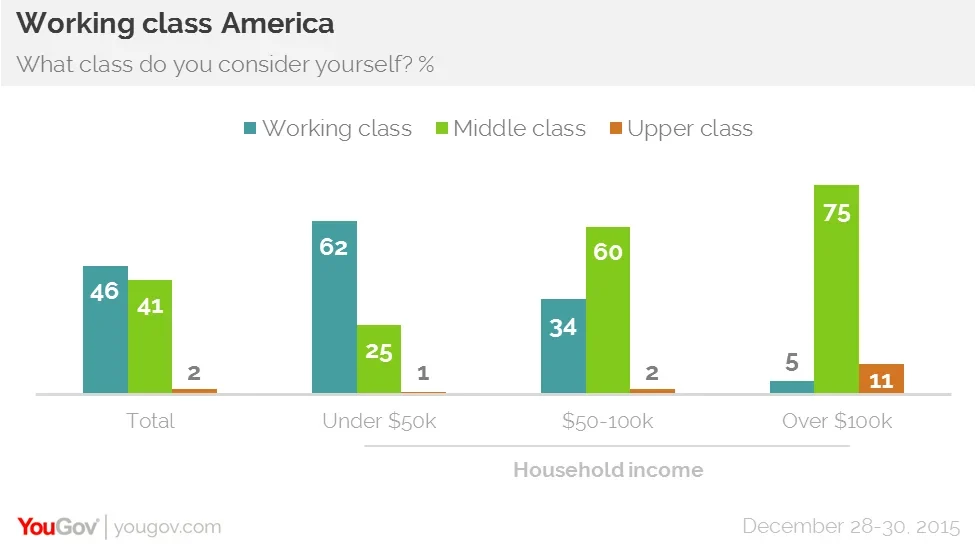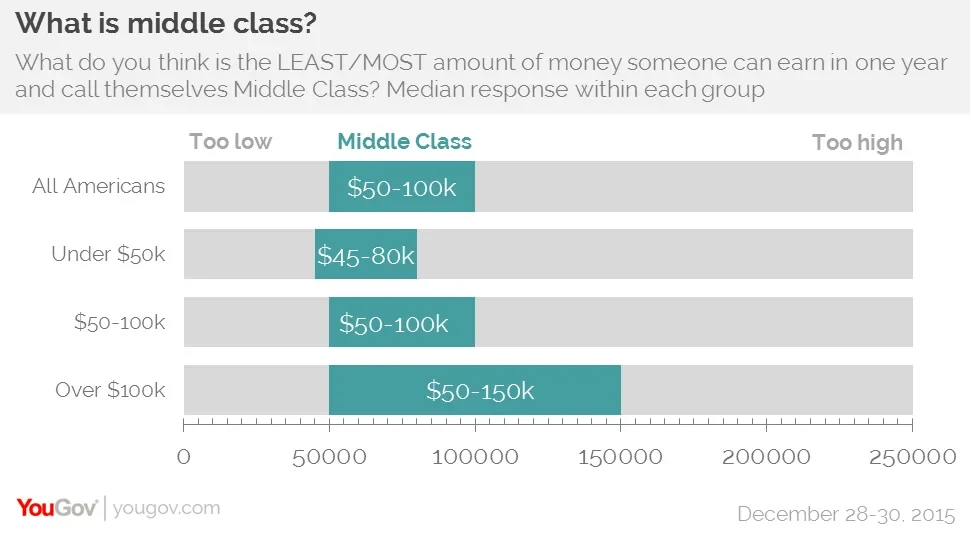Americans tend to say that they are working class, not middle class
Decades of rising income inequality look set to put the 'middle class' and its woes back on the political agenda as candidates for 2016 compete to demonstrate that they will be best for the middle class. Politicians rarely talk about the working class, however, and their definition of what counts as 'middle class' is much broader than it is for most Americans. Hillary Clinton, for example, has routinely described people earning up to $250,000 a year as 'middle class'.
YouGov's latest research shows that Americans tend to describe themselves as working class (46%) rather than middle class (41%). Among Americans who live in households with incomes under $50,000 a year, 62% call themselves working class and only 25% think of themselves as part of the middle class. Among households who earn $50,000 to $100,000 a year 34% still call themselves working class and 60% middle class. People earning over $100,000 a year are the most likely to call themselves middle class, with 75% saying that they are middle class and only 11% describing themselves as upper class.

The popular definition of middle class is far more narrow than that of politicians. Respondents were asked to name the lowest and highest annual income which they think constitutes the middle class, and the median result is that in order to be middle class you need to earn over $50,000 but no more than $100,000. The poorest Americans have the narrowest definition ($45-80k) while the richest have the broadest ($50-150k).

The median household income, that is the income that half of American households earn more than and half earn less than, was $53,657 in 2014. According to the Census Bureau only 28.5% of Americans earned between $50,000 and $99,999 a year in 2014. 24.7% of the country earned $100,000 or more, while 46.8% earned under $50,000 a year.
Full poll results can be found here and topline results and margin of error here.









